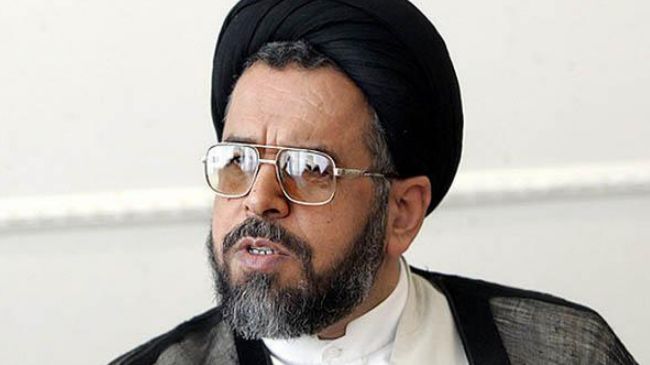
RNA – Speaking at a conference focusing on the affairs of Iranian Sunnis held in auditorium of the office of the Supreme Leader’s representative in Zahedan, Sistan and Balouchestan province, which is one of Iran's provinces with Sunni majority population, Hujjat al-Islam Sayyed Mahmoud Alavi stated that foreign intelligence agencies seek to provoke internal dissension and conflict among Islamic countries in order to turn Muslims against each other through the use of soft war techniques.
Iran’s Minister of Intelligence said that on one hand, these foreign intelligence agencies say that unless we pay a heavy price, Muslim blood will be shed and on the other hand, it will create a safe environment for the Zionist regime.
He added that the enemies’ intelligence agencies seek to create conflicts between Muslim countries to provide security for the Zionist regime, which until recently was on the verge of collapse.
Hujjat al-Islam Alavi explained that the enemies use of every window of opportunity available to create dissension among Muslims but our scholars have always been vigilant and have guided the people not to fuel such conflicts.
His Eminence pointed to the failures of the Zionist regime in the region, saying that previously the enemies tried to equip and invest in the Zionist regime in order to strengthen its military but after the failure of the regime on various fronts, including its 33-day war against Lebanon in 2006 and its attack on Gaza Strip during the summer of 2014, they changed their approach from that of a hard war to a soft war.
“Today, ISIL which was created by the intelligence agencies of the United States, the United Kingdom and Israel and is supported by the intelligence agencies of several Arab countries and Turkey, has done the most harm to Sunni Muslims,” he stressed to his audience of Sunni scholars and academics in the predominantly Sunni province of Sistan and Balouchestan.
Hujjat al-Islam Alavi added that the ISIL Takfiri terrorist group is an example of those who have committed “spreading corruption on earth,” a great crime in Islamic law, and should not call itself an “Islamic State” while killing innocent people and taking sectarian and ethnocentric positions.
The Shi’ite cleric said that due to the blessings of the existence and wise and rational guidance of Iran’s Supreme Leader, Ayatollah Sayyed Ali Khamenei, who always insists on the principle of moderation, and its unacceptance of takfirist Sunnism and Shi’ite extremism, the Islamic Republic Iran has remained safe from the enemies’ plots.
He emphasized Iran’s support of unity between Sunnis and Shi’ites and added that regardless of ethnic and sectarian differences, Iran has always rushed to the aid of the oppressed because the sacred system of the Islamic Republic of Iran has no ethnic or sectarian boundaries. “These divisions have caused adverse effects for Muslims,” he said.
His Eminence added that the security that Iran currently enjoys is a people-centred security and added that Iran needs to strive to preserve unity in order to maintain its security.
Hujjat al-Islam Alavi said the Islamic Republic of Iran is determined to invest in developments along the coastal regions of Sistan and Balouchestan province because this is a border region which is very far from the central areas of the country and has significant capabilities for greater development.
111/112